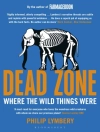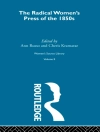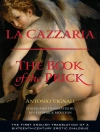Louise Imogen Guiney’s ‘Patrins’ is a poignant exploration of memory, identity, and the interplay between personal and collective histories. This collection of lyrical poetry showcases Guiney’s finely honed literary style, characterized by rich imagery and intricate rhythms that evoke a deep sense of place and time. Its themes resonate with the broader context of early 20th-century literature, reflecting a growing interest in the nuances of human experience and the significance of ancestral connections, drawing on both classical and contemporary influences to craft verses that linger in the mind. Guiney, an accomplished poet and essayist, was deeply influenced by her Irish heritage and commitment to the literary arts. Born in 1861, her extensive travels and experiences in England and the United States permeate her work, allowing her to weave a tapestry of cultural reflections into her poetry. Her nuanced understanding of the interplay between personal history and larger narratives makes ‘Patrins’ not just a collection of poems, but a meditation on the legacies that shape our identities. I wholeheartedly recommend ‘Patrins’ to readers seeking a profound engagement with the intricacies of memory and belonging. Guiney’s unique voice and masterful command of language offer a transformative experience, inviting readers to reflect on their own connections to the past. This collection is a vital addition to the canon of early 20th-century poetry, one that continues to resonate with contemporary audiences.
Tentang Penulis
Louise Imogen Guiney (1861–1920) was an American poet, essayist, and editor with a distinct presence in the literary world of her time. Born in Boston, Massachusetts, Guiney was a daughter of an Irish-Catholic background, a heritage that influenced her writing and the themes she explored in her work. Her education at the Elmhurst Academy in Providence, Rhode Island, provided the basis for her deep engagement with literature, especially the classics and the English poets of the 17th century. Guiney’s writing style is characterized by its lyrical quality and her frequent exploration of themes such as honor, loyalty, and the nobility of human spirit. Amidst her literary career, Guiney’s ‘Patrins’ stands out as a collection of reflective essays in which she delves into literary criticism and her observations on writers and poets who had a significant impact on her own philosophy and poetics. Influenced by the likes of Robert Browning and Edmund Spenser, Guiney offered her readers thoughtful discussions on the literary arts and their role within society. Beyond ‘Patrins’, her body of work encompasses several volumes of poetry and essays, including ‘A Roadside Harp’ (1893) and ‘Lovers’ Saint Ruth’s’ (1895), which further exhibit her reflective style and erudite approach to writing. Despite facing challenges as a woman writer in a male-dominated field, Guiney’s contributions to American letters were substantial, and her works continue to be revisited by scholars interested in the literary culture of the late 19th and early 20th centuries.












